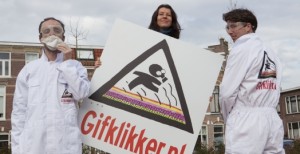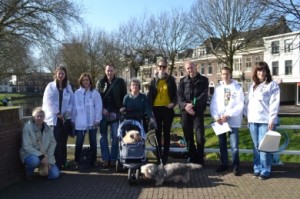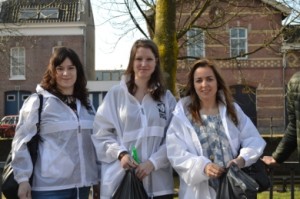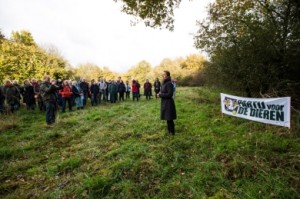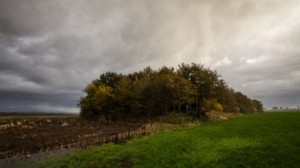Worldlog week 11 – 2014
A great success this week: agricultural chemical is to go off the shelves of Dutch garden centres! As of the end of 2015, the harmful agricultural chemical glyphosate will no longer be sold to private persons. Glyphosate is a compound of RoundUp, which is also sold to private persons as a weed killer. Glyphosate is increasingly connected to health problems such as infertility, birth defects, damage to the nerve system, Parkinson disease and various forms of cancer. In addition to the health risks for humans, the use of chemical pesticides further leads to the loss of biodiversity and increased complications for the purification of drinking water.
Last week and weekend, we have been actively campaigning for the municipal elections. Yesterday, I went along on an excursion in a Utrecht district to see if there is sufficient room for cyclists, enough outdoor playgrounds for children, and sufficient places to walk dogs. And tomorrow (Tuesday the 11th of March) I am going to plant a ‘protest tree’ in Amsterdam, together with the pupils of the primary school Cosmicus Impuls in Amsterdam-Noord.
This week, the State Secretary confirmed that Staatsbosbeheer (Forestry Commission, the state company that manages a large part of the Dutch nature areas) will stop the selling of nature. After our successful action to buy parts of nature, the sale of nature seems to to have been put aside for a while. Last year around this time it was announced that Staatsbosbeheer was going to sell parts of nature to the highest bidder. We then set up a forest funding action to buy parts of nature together with nature lovers. That was very successful! We raised more than two hundred and fifty thousand euros and also bought parts of nature.
Here is a very interesting article in The New York Times about the end of the difference between developing countries and developed countries.
Until next week!
Marianne
A great success this week: agricultural chemical is to go off the shelves of Dutch garden centres! As of the end of 2015, the harmful agricultural chemical glyphosate will no longer be sold to private persons. Glyphosate is a compound of RoundUp, which is also sold to private persons as a weed killer. Glyphosate is increasingly connected to health problems such as infertility, birth defects, damage to the nerve system, Parkinson disease and various forms of cancer. In addition to the health risks for humans, the use of chemical pesticides further leads to the loss of biodiversity and increased complications for the purification of drinking water.
Last week and weekend, we have been actively campaigning for the municipal elections. Yesterday, I went along on an excursion in a Utrecht district to see if there is sufficient room for cyclists, enough outdoor playgrounds for children, and sufficient places to walk dogs. And tomorrow (Tuesday the 11th of March) I am going to plant a ‘protest tree’ in Amsterdam, together with the pupils of the primary school Cosmicus Impuls in Amsterdam-Noord.
This week, the State Secretary confirmed that Staatsbosbeheer (Forestry Commission, the state company that manages a large part of the Dutch nature areas) will stop the selling of nature. After our successful action to buy parts of nature, the sale of nature seems to to have been put aside for a while. Last year around this time it was announced that Staatsbosbeheer was going to sell parts of nature to the highest bidder. We then set up a forest funding action to buy parts of nature together with nature lovers. That was very successful! We raised more than two hundred and fifty thousand euros and also bought parts of nature.
Here is a very interesting article in The New York Times about the end of the difference between developing countries and developed countries.
Until next week!
Marianne
